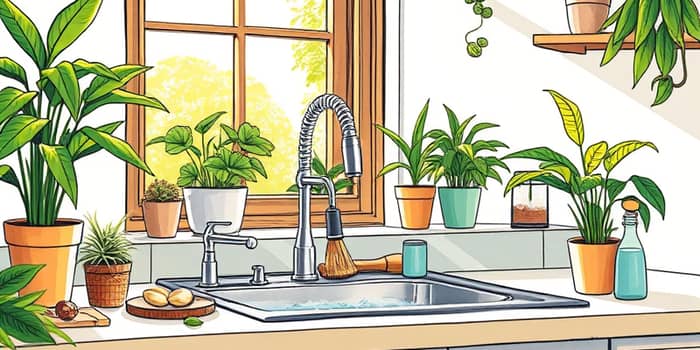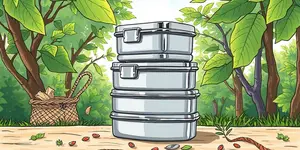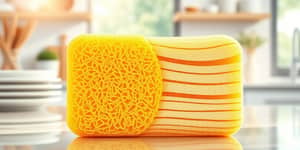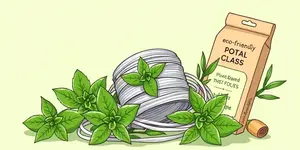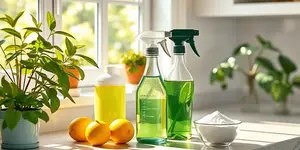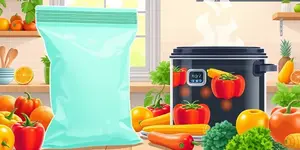Every day, millions of plastic sponges and brushes are tossed into landfills, contributing to a growing environmental crisis. By embracing sustainable kitchen tools, we can turn a simple chore into an act of environmental stewardship.
Why Compostable Dish Brushes?
Traditional plastic dish brushes and sponges release microplastics every time they’re rinsed or degraded, harming waterways and aquatic life. In contrast, compostable brushes—often crafted from bamboo, wood, and plant fibers—offer a green alternative.
These brushes are 100% biodegradable and compostable, meaning when they reach the end of their life they can return to the soil instead of cluttering up landfills. Bamboo and other timber options are fast-growing, requiring minimal resources, and they produce fast-growing woods are renewable resources without the need for pesticides or heavy irrigation.
How They Compare to Traditional Tools
Making the switch from plastic to compostable isn’t just an eco-friendly decision—it’s a practical one. Below is a comparison of key attributes:
Materials and Construction
Most compostable brushes feature a sturdy handle made from bamboo—often FSC certified—or other sustainably harvested woods. Bristles are typically sourced from natural fibers such as sisal, coconut, or tampico. Some designs include replaceable brush heads, simple, sustainable switch that benefits both your wallet and the planet.
How to Care for Your Compostable Brush
Proper maintenance will extend the life of your brush and keep it hygienic. Follow these easy steps:
- Rinse thoroughly after each use to remove food particles.
- Store bristles facing downward or hang to air dry fully.
- Disinfect weekly by soaking in hot water with vinegar and baking soda.
- Replace the brush head when bristles become thin or frayed.
With these habits, a single brush handle can last for years, while only the biodegradable heads need replacing every six to twelve months.
Avoiding Greenwashing
As eco-friendly products gain popularity, some brands may exaggerate claims. To ensure you choose genuine compostable brushes:
- Verify that bristles are entirely plant-based—no nylon or polyester blends.
- Look for clear compostability certifications or instructions on packaging.
- If metal staples are used, separate and recycle them before composting the rest.
- Avoid products that lack transparency about material sourcing.
True eco-conscious brands will provide detailed information on materials and end-of-life disposal.
The Big Impact of Small Changes
Switching to compostable dish brushes may seem minor, but it adds up. Consider that each person uses up to 26 plastic sponges every year. By replacing sponges with a long-lasting bamboo brush, you can prevent dozens of single-use items from entering landfills.
On a larger scale, if thousands of households made this change, we would see a meaningful drop in plastic waste and help protect aquatic environments against microplastics. Every brush composted rather than discarded is a victory for soil health and biodiversity.
Where to Find Compostable Dish Brushes
Compostable dish brushes are now widely available in zero-waste shops, organic grocers, and online retailers. Brands often offer refill head packs to minimize waste. When shopping, look for options with:
- Handles made from sustainably harvested bamboo or reclaimed wood.
- Bristles from certified plant fibers like sisal or coconut.
- Minimal or recyclable packaging.
Prices may be slightly higher upfront, but extended brush life and refillable heads deliver long-term savings.
Conclusion
Choosing a compostable dish brush is a simple, actionable step toward a zero waste kitchen. By replacing plastic tools with those made from natural materials, you embrace an eco-friendly exchange that reduces waste and supports healthy ecosystems.
Remember, every small choice contributes to a larger movement. Start today: invest in a bamboo dish brush, maintain it well, and compost it when its time has come. You’ll be part of a growing community proving that sustainable living is not only possible—it’s practical, affordable, and deeply rewarding.
References
- https://www.hellofloraco.com/blogs/thefloracodiaries/bamboo-dishwashing-brush-small-changes-big-impact
- https://www.ibannboo.com/the-top-5-benefits-of-using-a-bamboo-dish-brush-today/
- https://www.biomestores.com/blogs/eco-home/eco-dish-brush
- https://greenlivinglife.com/blogs/greenlife/why-use-natural-wooden-dish-brush-how-to-use
- https://www.oceansrespect.com/en/blogs/news/avantages-environnementaux-brosses-vaisselle-bambou
- https://myplasticfreelife.com/2015/12/08/the-truth-about-your-biodegradable-bamboo-toothbrush/
- https://www.betterbasics.co/blogs/news/did-you-know-that-dish-brushes-are-far-less-bacteria-breeding-than-sponges
- https://growingformarket.com/articles/making-great-compost-scale-the-tried-and-true-windrow

